Can traditional decentralized water solutions really meet the demands of a growing population while minimizing environmental impact?
The answer lies in adopting innovative approaches like decentralized water treatment, which treats water closer to the source, reducing costs and environmental footprint. According to the EPA, such systems can offer the same level of treatment as traditional centralized systems, making them a viable alternative.
The EPA highlights the effectiveness of decentralized systems in various settings, from individual dwellings to entire communities, as detailed in their report on decentralized wastewater treatment.
Key Takeaways
- Decentralized systems can provide effective water treatment.
- They offer a cost-effective and sustainable solution.
- Can be implemented in various settings, including rural and urban areas.
- Compliance with regulatory codes is achievable.
- Promotes business and job opportunities.
Introduction to Decentralized Water Treatment
Decentralized water treatment systems are revolutionizing the way we purify and manage water at the local level. This approach to water management is becoming increasingly important as communities face challenges related to water scarcity, pollution, and infrastructure.
Definition and Importance
Decentralized water treatment refers to the various methods and technologies used to treat water at or near the point of use, rather than relying on centralized treatment facilities. This approach can serve individual homes, businesses, or small communities, offering a flexible and efficient solution to water treatment needs.
The importance of decentralized water treatment lies in its ability to provide clean water in areas where traditional infrastructure is lacking or unreliable. It also offers a sustainable solution by reducing the energy required for transporting water over long distances.
“Decentralized water treatment systems have the potential to transform the way we manage water resources, making it possible to provide clean water to communities that have been underserved by traditional infrastructure.”
Overview of the Technology
Decentralized water treatment encompasses a range of technologies, including membrane filtration, advanced oxidation processes, and biological treatment systems. These technologies can be tailored to address specific water quality issues, such as removing contaminants or pathogens.
| Technology | Description | Application |
|---|---|---|
| Membrane Filtration | Uses semi-permeable membranes to remove contaminants | Drinking water treatment, wastewater reuse |
| Advanced Oxidation Processes | Employs oxidizing agents to break down pollutants | Industrial wastewater treatment, groundwater remediation |
| Biological Treatment Systems | Utilizes living organisms to degrade organic matter | Municipal wastewater treatment, industrial wastewater treatment |
By understanding the different technologies available, communities can select the most appropriate solutions for their specific water treatment needs, ensuring access to clean and safe water.
Benefits of Decentralized Water Treatment

By adopting decentralized water treatment systems, communities can enjoy improved water quality, sustainability, and cost savings. Decentralized wastewater treatment is particularly effective in addressing local water needs while minimizing environmental impact.
Improved Water Quality
Decentralized water treatment systems can significantly enhance water quality by removing contaminants and pollutants at the source. This localized approach ensures that water is treated to meet specific community needs, resulting in cleaner and safer water for consumption and other uses.
For instance, a study on a community-based decentralized water treatment project showed a reduction in waterborne diseases by 40% within the first year of implementation. Such improvements underscore the potential of decentralized systems to enhance public health.
Environmental Sustainability
Decentralized water treatment promotes environmental sustainability by reducing the energy required for water treatment and distribution. These systems often utilize natural processes and local resources, minimizing the carbon footprint associated with traditional centralized treatment plants.
A comparison of environmental impacts between centralized and decentralized systems revealed that decentralized systems can reduce greenhouse gas emissions by up to 30%. This is largely due to the reduced need for extensive infrastructure and energy-intensive treatment processes.
Cost-Effectiveness
One of the key advantages of decentralized water treatment is its cost-effectiveness. By treating water at or near the point of use, communities can avoid the high costs associated with building and maintaining large, centralized treatment facilities.
| Cost Component | Centralized Treatment | Decentralized Treatment |
|---|---|---|
| Initial Investment | High | Moderate |
| Operational Costs | High | Low to Moderate |
| Maintenance Costs | High | Low |
The table above illustrates the comparative cost-effectiveness of decentralized water treatment systems. By adopting such systems, communities can achieve significant long-term savings while ensuring access to clean and safe water.
Challenges of Decentralized Water Treatment
The shift towards decentralized water treatment is not without its challenges, which include technological constraints, regulatory barriers, and public acceptance concerns. As communities and organizations move towards adopting this innovative approach, understanding and addressing these challenges is crucial for successful implementation.
Technological Limitations
Decentralized water treatment technologies are not yet universally applicable due to various technological limitations. One of the primary concerns is the variability in water quality and the need for systems to adapt to different contaminants and concentrations. Moreover, the effectiveness of these systems can be influenced by factors such as maintenance, operation, and the training of personnel.
To overcome these limitations, ongoing research and development are focused on enhancing the efficiency and robustness of decentralized water treatment technologies. Advances in membrane filtration, advanced oxidation processes, and biological treatment systems are critical in this regard.
| Technological Limitation | Description | Potential Solution |
|---|---|---|
| Variability in Water Quality | Difficulty in handling different contaminants and concentrations | Advanced Water Quality Monitoring Systems |
| Limited System Robustness | Susceptibility to failure under varying conditions | Redundancy in System Design |
| Maintenance and Operation Challenges | Difficulty in maintaining and operating the systems effectively | Comprehensive Training Programs for Operators |
Regulatory Compliance
Regulatory compliance is another significant challenge for decentralized water treatment systems. Ensuring that these systems meet or exceed existing water quality standards and regulations is paramount. This involves navigating a complex landscape of federal, state, and local regulations, which can vary significantly.
To address regulatory compliance, it is essential to engage with regulatory bodies early in the process and to stay informed about evolving standards and requirements. Collaboration between system operators, regulators, and the community can facilitate the development of practical and effective regulatory frameworks.
Public Acceptance
Gaining public acceptance is crucial for the successful implementation of decentralized water treatment systems. Public perception can be influenced by factors such as awareness of the technology, trust in the system’s effectiveness, and concerns about cost and maintenance.
Effective public engagement and education strategies are vital in addressing these concerns. By providing clear information about the benefits and operation of decentralized water treatment, communities can build trust and foster acceptance.
Key Technologies in Decentralized Water Treatment
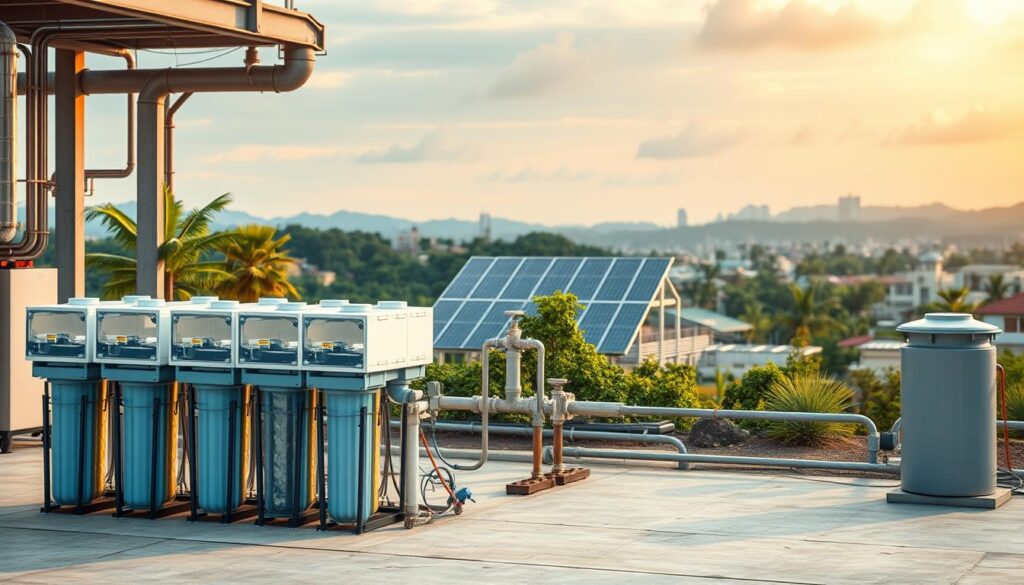
Decentralized water treatment utilizes a range of innovative technologies to address water quality issues. These technologies are crucial for providing clean water in various settings, from remote communities to industrial sites.
Membrane Filtration
Membrane filtration is a widely used technology in decentralized water treatment. It involves the use of semi-permeable membranes to remove contaminants from water. This technology is effective in removing a broad range of pollutants, including bacteria, viruses, and particulate matter.
The advantages of membrane filtration include its high efficiency and relatively low energy requirements. However, it can be susceptible to fouling, which requires regular maintenance to ensure optimal performance.
Advanced Oxidation Processes
Advanced oxidation processes (AOPs) are another key technology in decentralized water treatment. AOPs involve the generation of highly reactive species, such as hydroxyl radicals, to degrade organic pollutants. This technology is particularly effective in treating waters contaminated with industrial chemicals and pharmaceuticals.
- Effective against a wide range of organic pollutants
- Can be used in combination with other treatment technologies
- Potential for on-site generation of oxidants
Biological Treatment Systems
Biological treatment systems utilize living organisms or their byproducts to remove contaminants from water. These systems can be highly effective in treating organic matter and nutrients. Biological treatment systems can be designed to be compact and suitable for decentralized applications.
The key benefits of biological treatment systems include their potential for low operating costs and the ability to treat a variety of wastewater streams. However, they require careful design and operation to maintain the health of the biological processes.
Assessing Water Quality Needs
Understanding the specific water quality needs of a community is essential for designing an effective decentralized water treatment solution. This process involves several critical steps that help in determining the most appropriate treatment approach.
Sampling and Testing Methods
Accurate water quality assessment begins with proper sampling and testing methods. This includes collecting water samples from various sources and depths to ensure a comprehensive analysis. Advanced testing methods, such as chemical and biological analyses, are then used to identify contaminants and their concentrations.
Common sampling methods include:
- Grab sampling
- Composite sampling
- Continuous monitoring
Each method has its advantages and is chosen based on the specific requirements of the assessment and the characteristics of the water source.
Understanding Local Contaminants
Local contaminants can vary significantly from one region to another, depending on factors such as industrial activities, agricultural practices, and natural geological conditions. Understanding these contaminants is crucial for designing a treatment system that effectively removes them.
Common local contaminants include:
| Contaminant Type | Examples | Health Risks |
|---|---|---|
| Chemical | Heavy metals, pesticides | Cancer, neurological damage |
| Biological | Bacteria, viruses, parasites | Gastrointestinal diseases, infections |
| Physical | Particulates, sediments | Clogging of treatment systems, aesthetic issues |
Setting Treatment Goals
Once the water quality needs are assessed, the next step is to set clear treatment goals. These goals are based on the types and concentrations of contaminants identified during the assessment. Treatment goals should align with local and national water quality standards to ensure the treated water is safe for its intended use.
Key considerations for setting treatment goals include:
- Regulatory compliance
- Public health protection
- Environmental sustainability
By carefully assessing water quality needs and setting appropriate treatment goals, communities can implement effective decentralized water treatment systems that provide safe and reliable water.
Economic Considerations
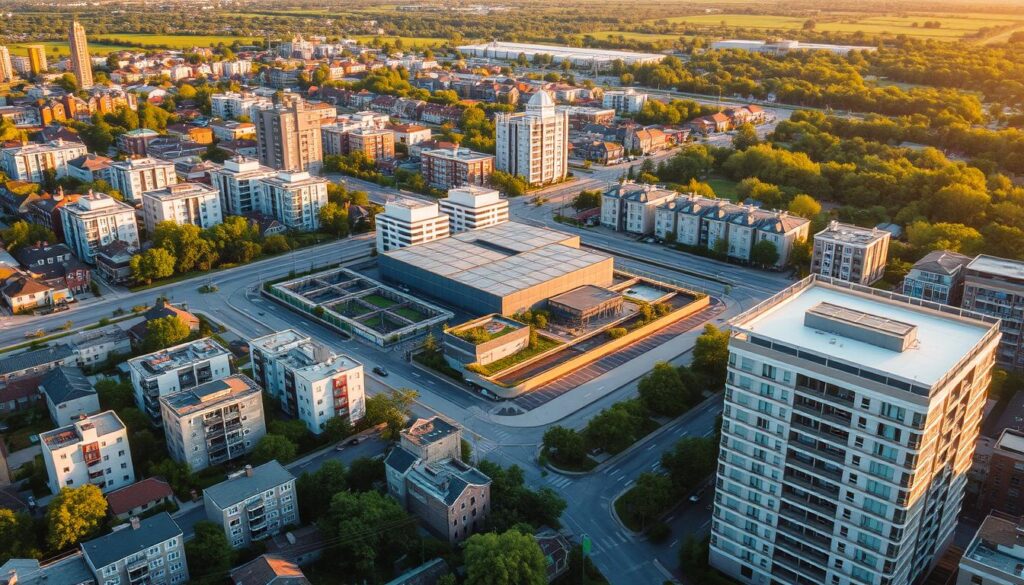
The adoption of decentralized water treatment systems is significantly influenced by economic factors, including initial investment and long-term savings. Understanding these economic considerations is crucial for communities and individuals looking to implement such systems.
Initial Investment vs. Long-Term Savings
While the initial investment in decentralized water treatment systems can be substantial, they often lead to significant long-term savings. For instance, reducing the need for costly infrastructure repairs and minimizing the energy required for water treatment can lead to considerable financial benefits over time.
According to a report by the EPA, the economic benefits of adopting innovative water treatment technologies can be substantial, including reduced operational costs (EPA Economic Analysis).
| Cost Component | Traditional Systems | Decentralized Systems |
|---|---|---|
| Initial Investment | High | Moderate to High |
| Operational Costs | High | Low to Moderate |
| Maintenance Costs | Moderate | Low |
Funding Options and Grants
Various funding options and grants are available to support the implementation of decentralized water treatment systems. Governments, NGOs, and private organizations offer financial assistance to promote sustainable water management practices.
For example, communities can explore grants and low-interest loans provided by government agencies to support infrastructure development. Additionally, some organizations offer funding for pilot projects and research initiatives focused on innovative water treatment technologies (World Civil Society Guide).
“Investing in decentralized water treatment systems not only improves water quality but also contributes to economic development by reducing healthcare costs associated with waterborne diseases.”
Financial Incentives for Communities
Communities adopting decentralized water treatment systems can benefit from various financial incentives. These may include tax credits, rebates, and other economic benefits designed to encourage the adoption of sustainable water management practices.
By understanding the economic considerations and leveraging available funding options and financial incentives, communities can make informed decisions about implementing decentralized water treatment systems that meet their needs and budget.
Community Engagement and Education
Decentralized water treatment projects thrive when community engagement and education are prioritized. Effective community engagement involves building awareness, involving local stakeholders, and implementing educational programs to ensure the long-term success of these projects.
Building awareness is the first step in community engagement. It involves educating the community about the benefits and importance of decentralized water treatment. This can be achieved through public outreach programs, workshops, and the distribution of informational materials. For instance, a community in a rural area might benefit from a workshop that explains how decentralized water treatment can improve their water quality and reduce reliance on centralized systems.
Involving local stakeholders is crucial for the success of decentralized water treatment projects. Local stakeholders can include community leaders, local businesses, and residents. Their involvement can be fostered through regular meetings, surveys, and by giving them roles in the decision-making process. According to a report by ADI International, empowering local stakeholders can significantly enhance the effectiveness of water management initiatives.
Strategies for Community Engagement:
- Public Outreach Programs
- Workshops and Seminars
- Informational Campaigns
- Stakeholder Meetings
Educational programs play a vital role in sustaining community engagement. These programs can range from training sessions for operators of decentralized water treatment systems to educational materials for schools. By educating the community, we can ensure that the benefits of decentralized water treatment are understood and appreciated.
| Strategy | Description | Benefits |
|---|---|---|
| Public Outreach | Informing the community about decentralized water treatment | Increased awareness and support |
| Workshops | Hands-on training and education | Improved understanding and skills |
| Stakeholder Involvement | Involving local leaders and residents in decision-making | Enhanced community buy-in and cooperation |
Designing a Decentralized Water Treatment System
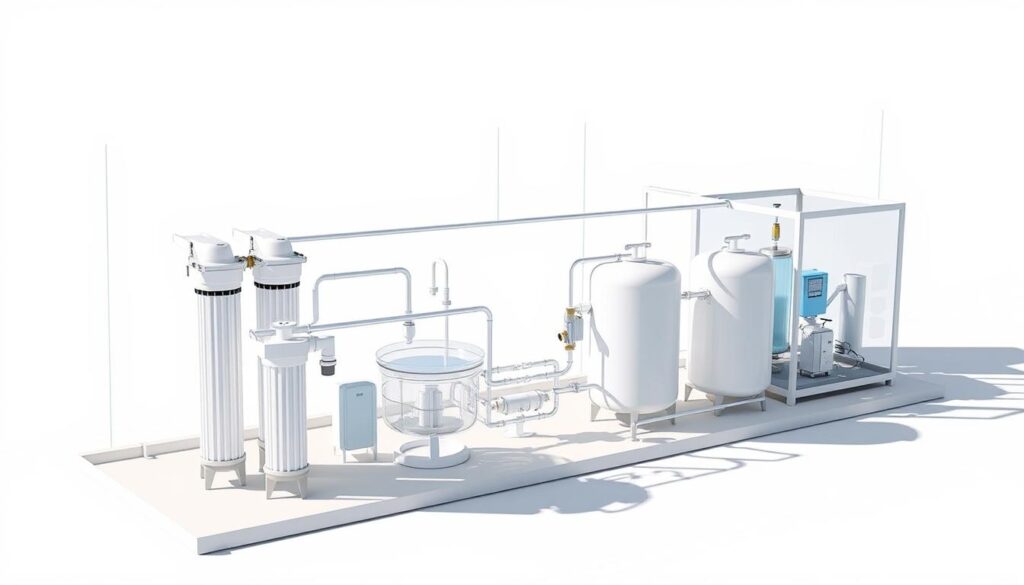
The process of designing a decentralized water treatment system involves several key considerations to ensure the system is effective, efficient, and sustainable.
Site Assessment and Selection
A thorough site assessment is critical for determining the feasibility of a decentralized water treatment system. This involves evaluating the site’s topography, hydrology, and existing infrastructure to identify potential challenges and opportunities.
Key factors to consider during site assessment include:
- Proximity to water sources and potential contaminants
- Land availability and terrain characteristics
- Accessibility for maintenance and operation
System Specifications and Configuration
Once the site has been assessed, the next step is to determine the system specifications and configuration. This includes selecting the appropriate treatment technologies, sizing the system, and designing the layout to ensure optimal performance.
The following table outlines the key components of a decentralized water treatment system and their specifications:
| Component | Description | Specification |
|---|---|---|
| Pretreatment | Removal of large debris and contaminants | Mesh size: 1-5 mm |
| Membrane Filtration | Removal of dissolved contaminants | Pore size: 0.1-1 micron |
| Disinfection | Inactivation of pathogens | UV dose: 30-40 mJ/cm² |
Integration with Existing Infrastructure
Integrating the decentralized water treatment system with existing infrastructure is crucial for ensuring seamless operation and minimizing additional costs. This may involve connecting to existing water distribution systems or incorporating the treatment system into current wastewater management practices.
Effective integration can help reduce overall project costs and enhance the sustainability of the water treatment system.
Implementation Strategies
The success of decentralized water treatment hinges on well-planned implementation strategies. Effective implementation ensures that the system operates as intended, providing clean water while minimizing environmental impact.
Pilot Testing Before Full-Scale Deployment
Pilot testing is a critical step before full-scale deployment of decentralized water treatment systems. It allows for the assessment of the system’s efficacy in real-world conditions, helping to identify potential issues early on.
- Evaluate the system’s performance under various operating conditions.
- Identify and rectify any technical issues or design flaws.
- Gather data to optimize the system’s configuration for full-scale deployment.
For more detailed guidance on pilot testing and other aspects of decentralized water treatment, refer to resources such as the EPA’s Septic Program Strategy.
Project Management Best Practices
Effective project management is crucial for the successful implementation of decentralized water treatment systems. This involves:
- Defining clear project goals and objectives.
- Establishing a detailed project timeline and milestones.
- Allocating resources efficiently and managing budgets effectively.
- Coordinating with stakeholders, including local communities and regulatory bodies.
Creating a Timeline
Creating a comprehensive timeline is essential for keeping the implementation process on track. This involves:
- Outlining key phases of the project, from planning to commissioning.
- Setting realistic deadlines for each phase.
- Identifying critical dependencies and potential bottlenecks.
- Regularly reviewing and updating the timeline to reflect progress and changes.
By following these implementation strategies, communities can ensure the successful deployment of decentralized water treatment systems, ultimately improving water quality and public health.
Maintenance and Operations
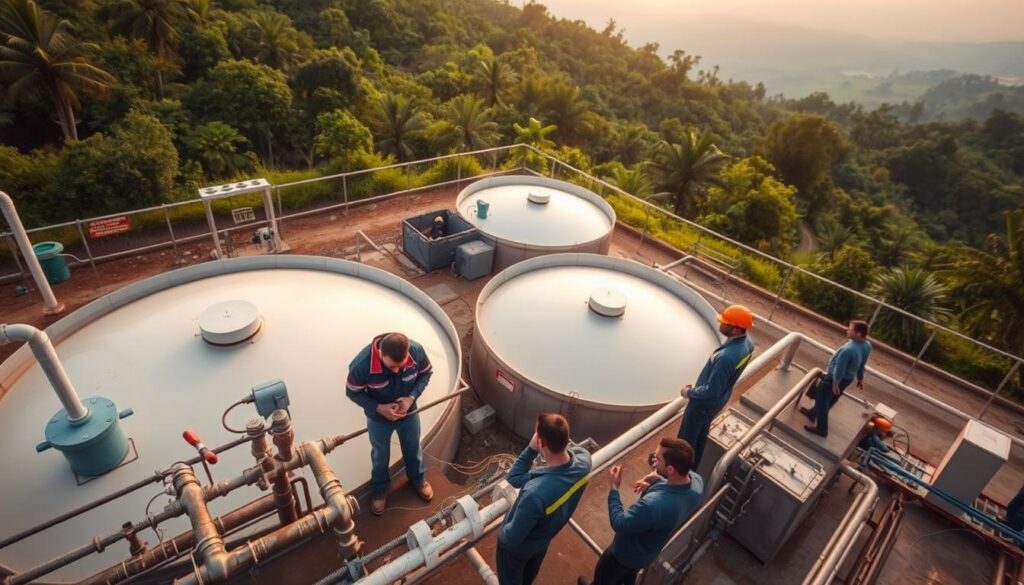
The success of decentralized water treatment systems hinges on proper maintenance and operational practices. Regular maintenance ensures that the system continues to operate effectively, providing clean water while minimizing downtime.
Routine Maintenance Practices
Routine maintenance is essential for the longevity and efficiency of decentralized water treatment systems. This includes regular inspections, cleaning, and replacement of parts as needed.
- Inspecting filters and membranes for damage or wear
- Cleaning or replacing filters to maintain water quality
- Checking electrical and mechanical components for proper function
By adhering to a routine maintenance schedule, operators can identify and address potential issues before they become major problems.
Training for Operators
Proper training for operators is critical to the effective operation of decentralized water treatment systems. Operators must understand how to perform routine maintenance, troubleshoot issues, and ensure compliance with regulatory standards.
Training programs should cover:
- System operation and maintenance procedures
- Troubleshooting common issues
- Regulatory compliance and reporting requirements
Effective training enhances operator confidence and competence, leading to improved system performance.
Monitoring System Performance
Continuous monitoring of system performance is vital to ensure that decentralized water treatment systems are functioning as intended. This involves tracking water quality parameters, flow rates, and system pressures.
| Parameter | Description | Importance |
|---|---|---|
| Water Quality | Measures contaminants and purity | Ensures safe drinking water |
| Flow Rate | Measures the volume of water treated | Affects system capacity and efficiency |
| System Pressure | Measures pressure within the system | Influences system performance and longevity |
By monitoring these parameters, operators can make informed decisions about maintenance and operational adjustments.
Case Studies of Successful Implementation
Various case studies demonstrate the successful implementation of decentralized water treatment systems, addressing diverse water treatment needs. These implementations have shown significant benefits in different contexts, from improving water quality to enhancing environmental sustainability.
Residential Systems
Decentralized water treatment systems have been effectively used in residential settings, providing clean water for households. For instance, a residential complex in a rural area implemented a membrane filtration system, significantly reducing contaminants in the water supply.
The system’s effectiveness was evident in the improved water quality and the reduction in waterborne diseases among the residents. Such residential systems highlight the potential for decentralized solutions to address water treatment needs at the household level.
Community-Based Projects
Community-based projects have also seen success with decentralized water treatment. A notable example is a community in a developing region that adopted a biological treatment system, which improved the water quality for the entire community.
This project not only provided clean water but also created jobs and stimulated local economic growth. The community’s involvement in the project’s planning and maintenance phases was crucial to its success, demonstrating the importance of community engagement in decentralized water treatment initiatives.
Innovative Solutions in Urban Areas
In urban areas, innovative decentralized water treatment solutions have been implemented to address specific water quality challenges. For example, an urban district implemented an advanced oxidation process to tackle high levels of industrial contaminants in the water supply.
This solution resulted in a significant reduction in contaminants and improved the overall water quality, making the water safer for consumption. Such innovative solutions showcase the adaptability and effectiveness of decentralized water treatment systems in diverse urban contexts.
Regulatory Framework for Decentralized Systems
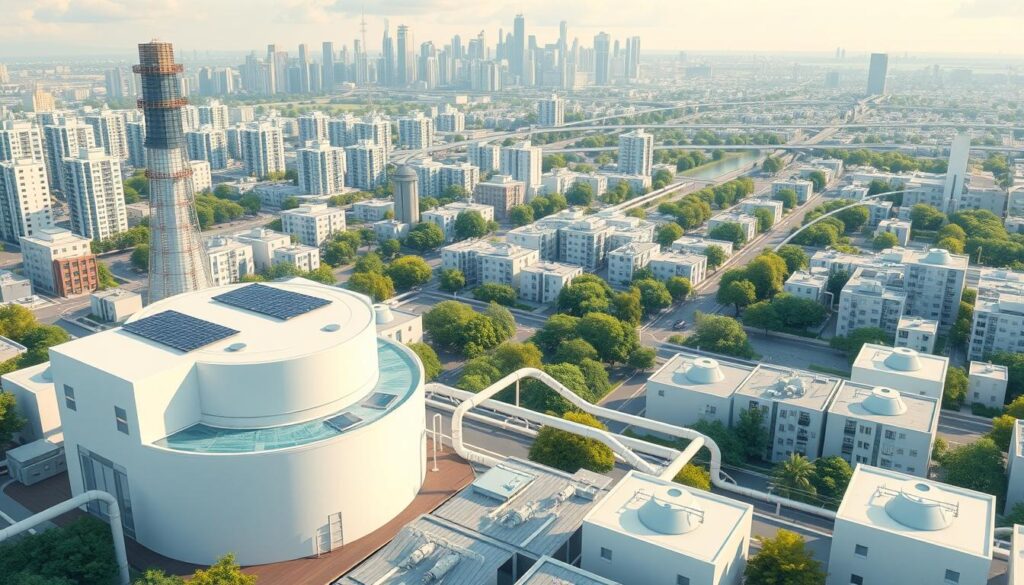
Decentralized water treatment systems must navigate a myriad of federal, state, and local regulations. Understanding these regulations is key to successful implementation and operation.
Federal and State Regulations
Federal regulations provide a baseline for water treatment standards across the United States. The Environmental Protection Agency (EPA) sets these standards, which include guidelines for safe drinking water and wastewater treatment. State regulations can be more stringent and are tailored to address local environmental concerns.
For instance, states with specific water quality issues, such as high levels of nitrates or arsenic, may have more rigorous testing and treatment requirements. It’s essential for operators of decentralized water treatment systems to be aware of both federal and state regulations that apply to their systems.
Local Guidelines and Permits
Local guidelines and permits play a crucial role in the approval and operation of decentralized water treatment systems. These regulations can vary significantly from one jurisdiction to another, reflecting local conditions and priorities.
Local health departments and environmental agencies are typically responsible for overseeing compliance with local regulations. This can include permits for construction, operation, and maintenance of decentralized systems.
Navigating Compliance Challenges
Navigating the complex regulatory landscape can be challenging for operators of decentralized water treatment systems. It requires a proactive approach to compliance, including staying informed about changes in regulations and engaging with regulatory agencies.
Effective compliance strategies include regular training for operators, thorough record-keeping, and periodic audits to ensure adherence to all relevant regulations.
| Regulatory Level | Key Regulations | Responsible Agencies |
|---|---|---|
| Federal | Safe Drinking Water Act, Clean Water Act | Environmental Protection Agency (EPA) |
| State | Varies by state; often includes water quality standards | State Environmental Agencies, Health Departments |
| Local | Local ordinances, zoning regulations, health codes | Local Health Departments, Zoning Authorities |
Future of Decentralized Water Treatment
The future of decentralized water treatment is poised to revolutionize the way we manage water resources globally. With technological innovations on the rise, decentralized systems are becoming increasingly efficient, cost-effective, and environmentally friendly.
Emerging Trends
Several emerging trends are shaping the future of decentralized water treatment. Advancements in membrane technology are improving filtration efficiency and reducing costs. Additionally, the integration of artificial intelligence and IoT is enhancing system monitoring and maintenance.
- Advancements in membrane filtration
- Increased adoption of advanced oxidation processes
- Integration of AI and IoT for improved system management
Expanding Applications
Decentralized water treatment is not only limited to residential areas but is also being adopted in industrial and agricultural sectors. This expansion is driven by the need for sustainable water management practices across various industries.
- Residential water treatment systems
- Industrial wastewater treatment
- Agricultural water reuse systems
Global Perspectives
Globally, decentralized water treatment is gaining traction as a viable solution to address water scarcity and pollution. Countries facing severe water challenges are adopting these systems to ensure a sustainable water supply.
| Region | Decentralized Water Treatment Adoption | Benefits |
|---|---|---|
| North America | Increasing adoption in residential areas | Improved water quality, cost savings |
| Asia | Growing use in industrial sectors | Reduced environmental impact, enhanced water reuse |
| Africa | Rising implementation in rural communities | Access to clean water, community development |
In conclusion, the future of decentralized water treatment looks promising, with technological advancements and expanding applications driving its growth globally.
Conclusion: The Path Forward
Decentralized water treatment is a vital component in the quest for sustainable water management. As communities face increasing water quality challenges, adopting innovative solutions is crucial.
Key Takeaways
The main points discussed in this article highlight the benefits of decentralized water treatment, including improved water quality, environmental sustainability, and cost-effectiveness. Understanding the challenges and key technologies involved is essential for successful implementation.
Community Action
Communities must take proactive steps to adopt decentralized water treatment systems. This involves assessing local water quality needs, engaging with stakeholders, and exploring available funding options.
Innovative Solutions for a Sustainable Future
Embracing decentralized water treatment is a significant step towards a sustainable water future. By leveraging technologies like membrane filtration and advanced oxidation processes, communities can ensure access to clean water while minimizing environmental impact.
In conclusion, decentralized water treatment offers a promising solution to the pressing issue of water quality. A summary of the key points and a call to action for communities to adopt these innovative solutions can pave the way for a more sustainable future.
